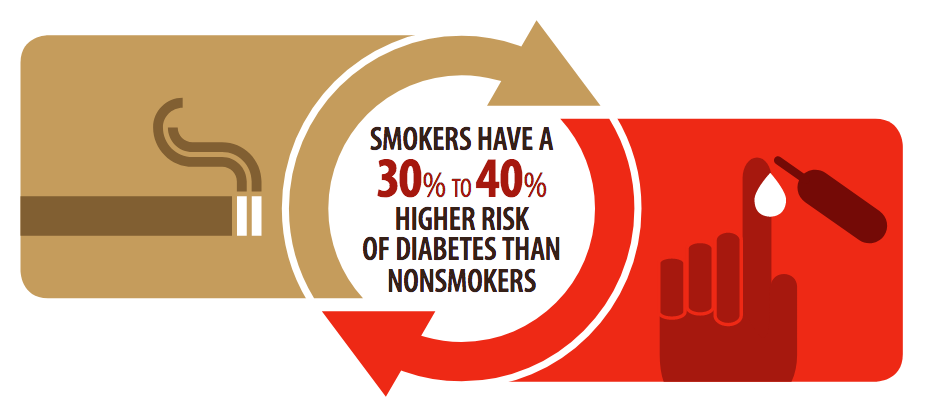Smoking, Type 2 Diabetes, Obesity and Pancreatic Cancer
Share this Article:

Smoking, Type 2 Diabetes, Obesity and Pancreatic Cancer
Written By Tony Subia
July 2020
There are definitely links among Smoking, Type 2 Diabetes, and Pancreatic Cancer. Smoking and obesity are risk factors for Type 2 Diabetes. Smoking and obesity are major pancreatic cancer risk factors. Type 2 diabetes is both a risk factor and a symptom of pancreatic cancer. And although genetic hereditary aspects are beyond a person’s control, some elements of smoking and obesity are within within a person’s control.
What We All Need To Know About Smoking and Diabetes
Smoking is a major cause of type 2 diabetes, which is also known as adult-onset diabetes.
Therefore, smokers have a greater risk of developing type 2 diabetes than do nonsmokers. Diabetes is a chronic disease that affects the way the body metabolizes sugar (glucose), an important source of fuel for the body. If you have type 2 diabetes, your body either resists movement of sugar into your cells or does not produce enough insulin to maintain proper levels of glucose. There is no cure for type 2 diabetes but there are ways to help manage the disease.
How Smoking Causes Type 2 Diabetes
Smoking increases inflammation in the body. Inflammation occurs when chemicals in cigarette smoke injure cells, causing swelling and interfering with proper cell function. Smoking also causes oxidative stress, a condition that occurs as chemicals from cigarette smoke combine with oxygen in the body. This causes damage to cells. Evidence strongly suggests that both inflammation and oxidative stress may be related to an increased risk of diabetes.
Evidence also shows that smoking is associated with a higher risk of abdominal obesity, or belly fat which is a diabetes risk factor. Belly fat, particularly when the waist has a larger diameter of a person’s hips will cause the body to increase production of the hormone “cortisol” which increases blood sugar levels. Those that smoke have higher concentrations of cortisol than do non-smokers.
When those with type 2 diabetes are exposed to high levels of nicotine, their insulin levels are compromised and the purpose of insulin is less effective in controlling proper levels of blood sugar the the bloodstream. Not only are people more vulnerable to getting type 2 diabetes, they become more likely to experience other types of serious health problems including kidney disease, heart disease, and of course…….pancreatic cancer.

